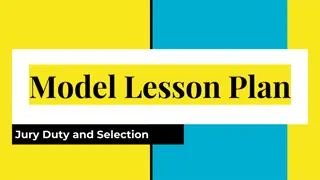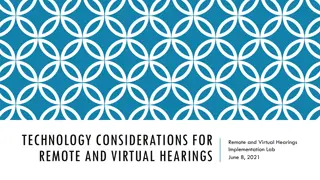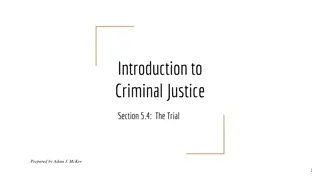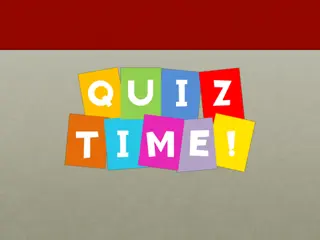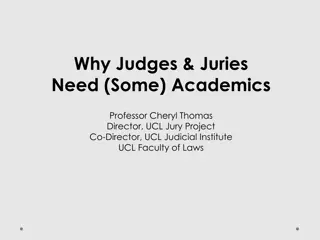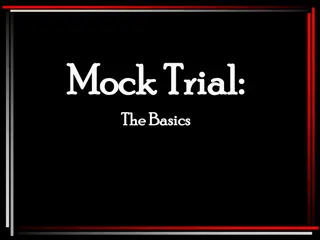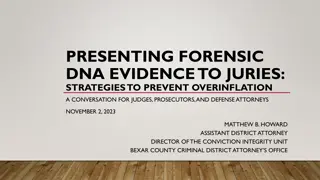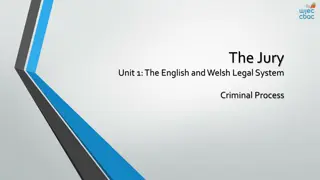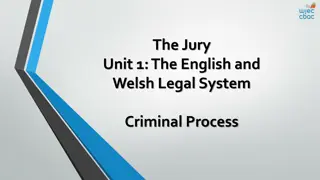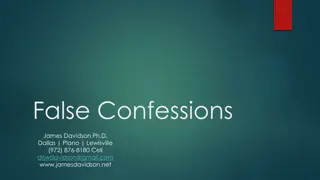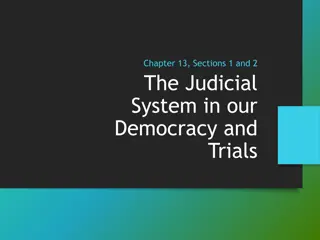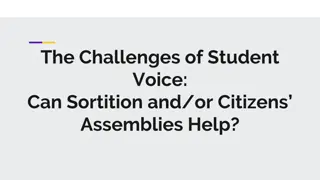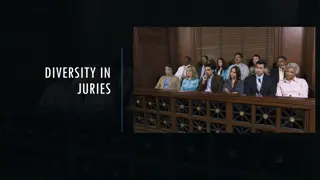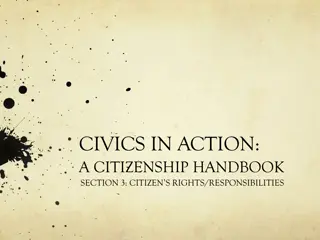Understanding Juries: The Basics and Jury Selection Process
Juries are an essential part of the legal system, offering defendants the right to a trial by an impartial jury. This right applies in criminal prosecutions where the accused faces at least six months in prison. Juries must consist of impartial community members, with verdicts requiring unanimity. T
4 views • 14 slides
Strategic Tourism Demand Forecasting Methods
The chapter delves into qualitative and quantitative approaches for tourism demand forecasting, including the Delphi method and executive opinion juries. It explores advanced forecasting methods and the application of big data analytics in the tourism industry. The focus is on generating expert opin
1 views • 39 slides
Technology Considerations for Remote and Virtual Hearings Implementation
This content discusses the technology considerations for implementing remote and virtual hearings in courtrooms. It covers aspects such as courtroom technology framework, technology considerations matrix, and AV devices placement and requirements. The framework includes acoustic treatments, audio/vi
0 views • 7 slides
Understanding the Criminal Trial Process
The Sixth Amendment guarantees various rights during criminal trials, such as a speedy and public trial, trial by jury, notice of accusations, the right to confront witnesses, and the assistance of counsel. Defendants can opt for a bench trial where the judge decides innocence or guilt. Juries, typi
0 views • 33 slides
Understanding the Power of Persuasion in Criminal Law
Explore the art of persuasion in criminal law, focusing on making effective arguments, analyzing murder statutes, and applying facts to crime elements. Discover how persuasion plays a vital role in convincing juries of guilt or innocence, and delve into the themes of prosecution versus defense.
0 views • 17 slides
Understanding the Importance of Academics in the Jury System
This collection of images presents insights from Professor Cheryl Thomas, Director of the UCL Jury Project, on the crucial role of academics in enhancing the understanding and functioning of judges and juries. It highlights the benefits that academic research has brought to the jury system, dispels
0 views • 32 slides
Understanding the Basics of Mock Trials in the American Justice System
Mock trials in the American justice system involve presenting evidence through witness testimony and physical evidence to help juries or judges determine facts. The process includes witness testimony under oath, examination by attorneys, admission of physical evidence, and closing arguments. The tri
0 views • 38 slides
Strategies for Presenting Forensic DNA Evidence Without Overinflating Importance
Presenting forensic DNA evidence to juries requires a balanced approach to prevent overinflation of importance. Early consultation with experts, adherence to Daubert Standard, addressing DNA contamination risks, and discussing statistical interpretation are crucial aspects to consider in ensuring a
0 views • 15 slides
Understanding the Role of Juries in the Legal System
This content delves into the history, selection, and role of juries in the English and Welsh legal system, covering topics such as jury trials, jury selection, types of cases involving juries, qualifications required, and the significance of unanimous and majority verdicts in criminal and civil case
0 views • 16 slides
Understanding the English and Welsh Legal System: The Role of Juries
Explore the history of jury trials, jury selection processes, and the significance of juries in the criminal justice system. Delve into the civil jury system and the role of coroners' courts in utilizing juries for inquiries. Consider reforms and alternatives in jury trials to enhance the judicial p
0 views • 16 slides
Understanding False Confessions in the Criminal Justice System
False confessions are a concerning issue in the criminal justice system, leading to wrongful convictions and unjust outcomes. Various factors contribute to false confessions, including coercion, misinterpretation, and vulnerable demographics. The consequences of false confessions can be severe, impa
0 views • 24 slides
Understanding the Judiciary and Trial Courts in a Democracy
Learn about the judiciary's role in democracy, including principles like judicial review and independence. Explore the function of trial courts, the trial process, and the importance of juries in resolving legal disputes.
0 views • 22 slides
The Challenges of Student Voice: Can Sortition and/or Citizens Assemblies Help?
Explore the concept of sortition and citizens assemblies in empowering student voice through historical insights from ancient Athens to modern applications like law court juries and deliberative polls. Discuss the potential of these methods to enhance democracy within educational settings.
0 views • 19 slides
Importance of Diversity in Juries and Jury Service
Understanding the significance of diverse juries, this content explores the benefits, obstacles, and selection criteria for jurors. It delves into the rights to a jury trial, jury duty responsibilities, and the positive impact of diversity on trial outcomes. Furthermore, it discusses the role of jur
0 views • 11 slides
American Citizenship Handbook: Rights, Duties, and Responsibilities
Understand the key aspects of American citizenship including rights, responsibilities, and duties. Learn about the categories of American rights, due process of law, and important terms such as citizens and naturalization. Discover the obligations of Americans such as obeying laws, paying taxes, def
0 views • 7 slides
